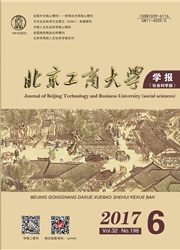

 中文摘要:
中文摘要:
不满意与期望不一致是抱怨产生的情绪与认知根源.抱怨具有人际传播的可能性,存在情绪感染和负面口碑传播两种机制.结合Hofstede五种文化维度可得出不同文化背景下个体抱怨影响群体满意度的模型(I-G模型).从权力维度来看,权力差距意识高的群体易受意见领袖的影响,且抱怨的人际影响更强、更快.从关系维度来看,集体主义的群体更会盲目附和大众口碑,而个体主义的群体更加理性.从性别维度来看,男性气质群体的情绪和负面认知极易成为大众知识,而在女性气质群体中,更易成为隐性知识.从风险维度来看,不确定规避高的群体易受制度规置的影响,而不确定规避低的群体更热衷冒险,追求利益或补偿将成为影响群体的重要原则.从时间维度来看,在长期导向的群体中,个体抱怨的影响更持久.
 英文摘要:
英文摘要:
Dissatisfaction and expectancy disconfirmation are the emotional and cognitive source of consumer complaints. It is possible that individual complaints will spread around a certain group, and there exist two different spreading mechanisms such as emotional contagion and negative word of mouth. Based on Hofstede's five dimensions of cultures, an I-G model cart be postu- lated, which shows how individual complaints affect group satisfaction under different cultural backgrounds. From the perspective of power dimension, the group with intentions of higher power distance is more easily influenced by the opinion leaders, and the complaints have stronger and quicker interpersonal influences. From the perspective of relationship dimension, collectivism group is more possible and irrational to follow public word of mouth than individualism group does. From the perspective of gender di- mension, the expectancy diseonfirmation and dissatisfaction of a consumer in a masculinity group are prone to turn into public knowledge, and which in femininity group are more likely to turn into tacit knowledge. From the perspective of risk dimension, individual complaints in a group with strong uncertainty avoidance are influenced by rules, while the consumers in a group with weak uncertainty avoidance are hazardous and prone to get the compensation for the reason of complaints. From the perspective of time dimension, the effect of individual complaint will be more persistent in a long-term orientation group.
 同期刊论文项目
同期刊论文项目
 同项目期刊论文
同项目期刊论文
 期刊信息
期刊信息
